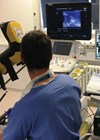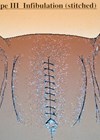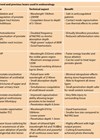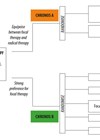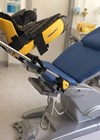Features
Visual-estimation (cognitive), image-fusion (software) and in-bore targeted prostate biopsy: is there an optimal approach?
The diagnostic superiority of multiparametric magnetic resonance imaging (mpMRI) prior to targeted and systematic prostate biopsy over systematic transrectal ultrasound-guided (TRUS) biopsy alone in the detection of clinically significant prostate cancer (csPCa) has been proven by multiple level 1 studies...
Management of lower urinary tract foreign bodies
Of all the urological emergencies presenting to the emergency department, perhaps one of the most technically challenging cases is the patient with a foreign body in the genitourinary (GU) tract. A wide variety of GU foreign bodies have been reported...
The impact of FGM on the genitourinary system: a 2021 perspective
Awareness of female genital mutilation (FGM) in European countries has increased over recent decades as a result of globalisation and migration of populations. The World Health Organization (WHO) describes FGM as procedures that involve partial or total removal of the...
Remote working: what can health professionals learn from business?
Remote working has been widely used in business for many years but before COVID-19, this was not the case within healthcare settings. This article seeks to review the advantages, challenges and solutions which users of remote working in business have...
Diving into unfamiliar water – volunteering in critical care
On the 14th and 15th floor of The Royal London Hospital lay rows of patients infected with COVID-19 battling for their lives at The Queen Elizabeth unit. In response to the pandemic, the hospital rapidly expanded their critical care facility...
Priapism
Priapism is defined as an abnormally persistent erection lasting greater than four hours, not associated with sexual desire [1]. Although relatively uncommon with an incidence of 1.5 per 100,000 [2], priapism has a risk of complications which can have a...
Update on immunotherapy for non-muscle invasive transitional cell carcinoma of the bladder
Patients with high-risk non-muscle invasive bladder cancer (NMIBC) that have failed Bacillus Calmette-Guérin (BCG) treatment are a difficult group to treat, and many may not be suitable for the preferred treatment option of radical cystectomy. Bladder-preserving treatments for BCG-unresponsive high-risk...
What is new in lasers for endourology: looking into the future
From the first cystoscopic argon and neodymium-YAG (yttrium-aluminium-garnet) laser used for bladder tumours in 1976 by Staehler et al. [1], lasers have proven to be a versatile and an evolving tool in the therapeutic management of a variety of urological...
PROFILE study seeks to find out why black men develop prostate cancer at twice the rate of other men
A first-of-its-kind study in the UK is aiming to solve the mystery of why black men develop prostate cancer at twice the rate of other men. Funded by Prostate Cancer UK in partnership with Movember, the PROFILE study will look...
Focal therapy trials
Men with localised prostate cancer have traditionally required whole gland treatment involving radical prostatectomy or radical radiation treatment, independent of disease location and size. Increasing evidence supports the use of active treatment only in those men diagnosed with prostate cancer...
Establishing a new TPPBx service during the COVID-19 pandemic
COVID-19 had a major impact on our hospital services from early in the pandemic, with almost three times as many patients being ventilated compared to the normal ITU capacity at the beginning of April. During the build-up to this point,...
Penile cancer: a practical approach
Penile cancer is rare and accounts for less than 1% of all new cancer cases in males in the UK, with around 640 new cases diagnosed every year [1]. In England and Wales, the annual incidence is between 1.2 and...

